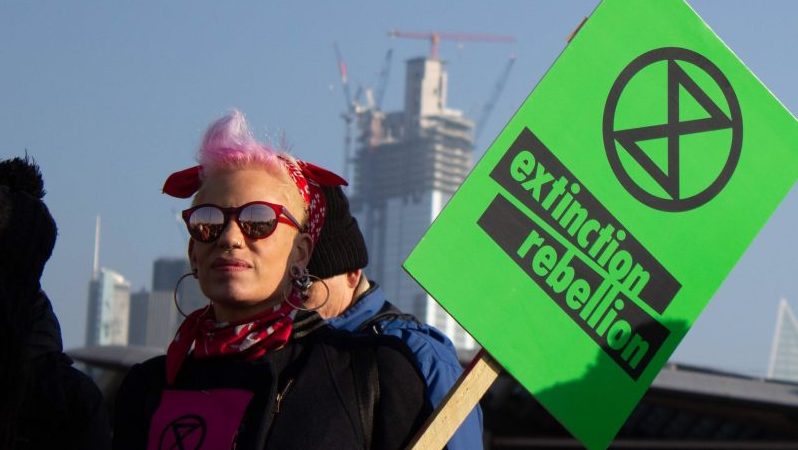The sun is shining on Extinction Rebellion protesters as their occupation of key London intersections enters its fifth day.
Climate Home News was on the scene when Farhana Yamin glued herself to Shell headquarters – or as close as she could get before police swooped.
Yamin, who has helped craft international climate law for three decades, told us why she turned to direct action. “Making new laws is really important. But breaking the law has become more important because of the gravity and the nature of the political crisis that is stopping these laws being good enough in the first place,” she said. The video we took of her diving through the clutches of a police officer has been picked up by Channel 4 and the BBC.
One of the activists’ demands is a citizens’ assembly to develop (they hope) radical climate policy. It’s inspired by the Irish model that led to the overturn of an abortion ban and calls for a higher carbon tax.
Hard cash
Extinction Rebellion’s disruptive tactics have proved divisive. The earnest folk songs and whimsical craftwork do nothing to dispel activist stereotypes.
So if you prefer your climate advocacy suited and booted, turn to the 23 finance ministers promising to align their tax and spend with international climate goals. Or Mark Carney, launching recommendations for central banks and other key financial actors on how to climate-proof the system.
The wheels of capitalism are turning, although analysis by NGO Urgewald shows the World Bank is still investing more in fossil fuels than renewables.
Climate conversations
Have hope, humanity is finding ways to defeat climate change – Ed Davey
Adaptation’s scale problem
There is no shortage of smart ideas to help poor communities cope with the impacts of climate change. There is a shortage of cash.
One of the key challenges, Sara Stefanini reports from Addis Ababa, is scale: unlike a solar panel, which meets the same need anywhere, adaptation needs are highly location-specific.
In Rwanda, the government is partnering with smallholders in a bid to halt forest loss in the face of rising demand for wood. Done right, tree planting can bring income as well as environmental stability to communities.
